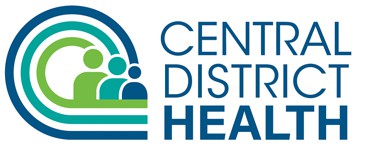As of August 25, 2022, ten cases of monkeypox have been reported in Idaho and community transmission has been identified. Idaho case counts are on https://healthandwelfare.idaho.gov/health-wellness/diseases-conditions/monkeypox. Please see below for updated recommendations and resources.
Collecting and Shipping Specimens
- Swab 2-4 lesions, using 2 swabs per lesion. Swab lesion surface vigorously so that an adequate specimen is collected; otherwise, test results may be inconclusive or false negative. De-roofing or lancing the lesion before swabbing is not necessary.
- Specimen requirements vary by laboratory. Before specimen collection, view requirements of the specific laboratory to confirm collection, storage, and shipment instructions. Ship specimens as Category B.
Testing Laboratories and Billing
Commercial laboratories—including Labcorp, Aegis Science, and Sonic Healthcare—are processing non-variola orthopoxvirus testing. Quest Diagnostics and ARUP Laboratories are performing monkeypox specific testing. Providers may order testing through commercial labs without prior consultation with public health district or state epidemiologists.†
Interpreting Orthopoxvirus Results
A positive Orthopoxvirus test suggests Monkeypox virus infection: no other Orthopoxviruses that cause systemic disease are circulating within the United States. Clinical care and prevention precautions should begin based on the Orthopoxvirus test result. If a patient has no known risk factors or epidemiologic criteria, positive results should be verified with repeat or confirmatory testing.
Idaho Bureau of Laboratories (IBL) will perform non-variola orthopoxvirus testing with prior approval
from public health district or state epidemiologists. Submission to IBL should be considered only
when fast turn-around is needed (e.g., the patient or a contact of the patient is at high risk of severe
illness and a rapid result is needed to inform clinical decisions) or for patients who are uninsured or
under-insured.
†Commercial laboratories will bill private insurance, Medicaid or Medicare for all testing performed. Those who are underinsured or uninsured will receive a bill for testing at commercial laboratories. Clinicians may find the relevant CPT code for orthopox or monkeypox testing on each commercial laboratory’s website. Testing at IBL is free.
Tecovirimat Expanded Access Investigational New Drug (EA-IND) Protocol
Tecovirimat (TPOXX or ST-246) is approved by the Food and Drug Administration (FDA) for treating human smallpox disease caused by Variola virus in adults and children. CDC has an expanded access Investigational New Drug protocol (EA-IND) to allow access to and use of TPOXX to treat monkeypox in adults and children of all ages. CDC recommends consideration of treatment for patients with severe disease, those at risk of severe disease, and patients with lesions in anatomically sensitive areas. See CDC clinical guidance for more information.
The EA-IND provides an umbrella regulatory coverage so that clinicians and facilities do not need to request and obtain their own INDs. The EA-IND provides liability protection under the PREP Act for clinicians prescribing, administering, or dispensing TPOXX and the ability for patients to seek compensation if they are seriously injured by TPOXX through the Countermeasures Injury Compensation Program (CICP).
#####

